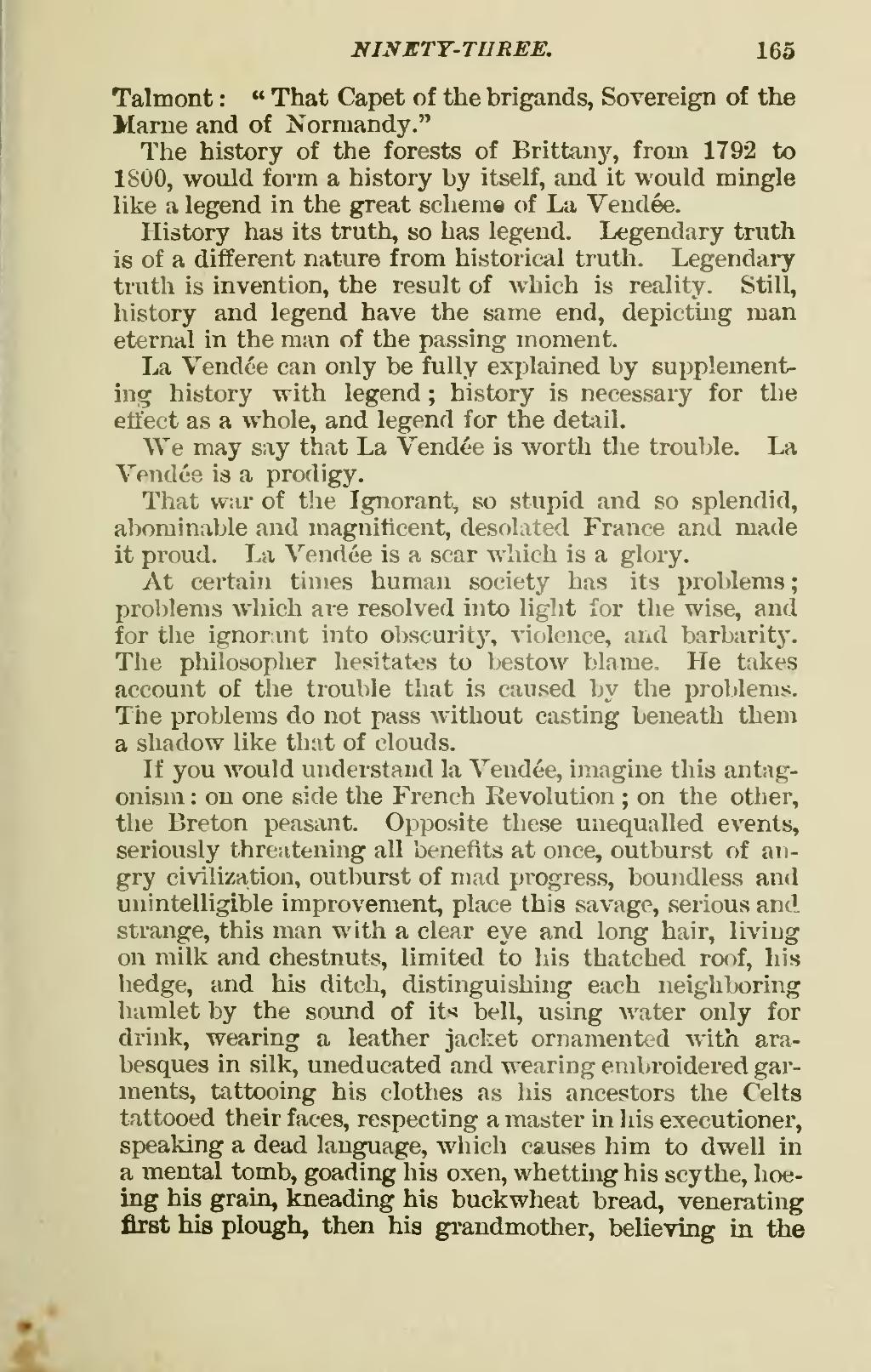Talmont: "That Capet of the brigands, Sovereign of the Marne and of Normandy."
The history of the forests of Brittany, from 1792 to 1800, would form a history by itself, and it would mingle like a legend in the great scheme of La Vendée.
History has its truth, so has legend. Legendary truth is of a different nature from historical truth. Legendary truth is invention, the result of which is reality. Still, history and legend have the same end, depicting man eternal in the man of the passing moment.
La Vendée can only be fully explained by supplementing history with legend; history is necessary for the effect as a whole, and legend for the detail.
We may say that La Vendée is worth the trouble. La Vendée is a prodigy.
That war of the Ignorant, so stupid and so splendid, abominable and magnificent, desolated France and made it proud. La Vendée is a scar which is a glory.
At certain times human society has its problems; problems which are resolved into light for the wise, and for the ignorant into obscurity, violence, and barbarity. The philosopher hesitates to bestow blame. He takes account of the trouble that is caused by the problems. The problems do not pass without casting beneath them a shadow like that of clouds.
If you would understand la Vendée, imagine this antagonism: on one side the French Revolution; on the other, the Breton peasant. Opposite these unequalled events, seriously threatening all benefits at once, outburst of angry civilization, outburst of mad progress, boundless and unintelligible improvement, place this savage, serious and strange, this man with a clear eye and long hair, living on milk and chestnuts, limited to his thatched roof, his hedge, and his ditch, distinguishing each neighboring hamlet by the sound of its bell, using water only for drink, wearing a leather jacket ornamented with arabesques in silk, uneducated and wearing embroidered garments, tattooing his clothes as his ancestors the Celts tattooed their faces, respecting a master in his executioner, speaking a dead language, which causes him to dwell in a mental tomb, goading his oxen, whetting his scythe, hoeing his grain, kneading his buckwheat bread, venerating first his plough, then his grandmother, believing in the

